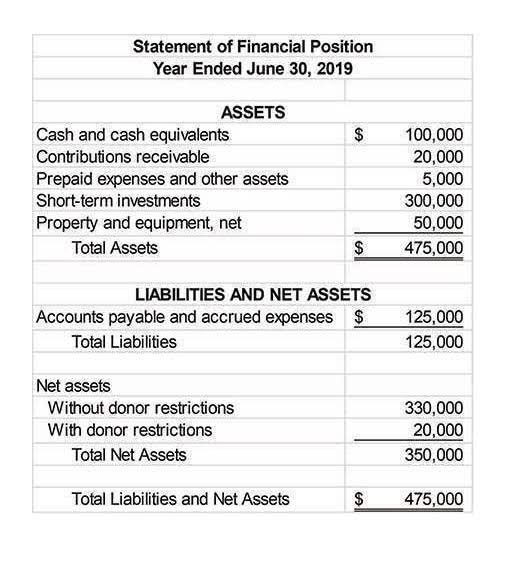
An accrual system recognizes revenue in the income statement before it’s received. A deferral system aims to decrease the debit account and credit the revenue account. Small businesses rely on their financial performance to remain solvent and competitive. Accounting plays a crucial role in the success of a small business, and understanding the difference between deferred revenue and accounts receivable is essential.
- The purpose of doing that is to indicate in the statements that this amount is invoiced, tracked and should be collected.
- Accrual and deferral are two fundamental accounting concepts that play a crucial role in recognizing revenue and expenses in financial statements.
- When the bill is received and paid, it is entered as $10,000 to debit accounts payable and $10,000 to credit cash.
- This means that deferred revenue is recorded on the balance sheet as a liability until the goods or services have been delivered, while accounts receivable is recorded as an asset.
What types of expenses are typically deferred?
On the other hand, a deferred revenue results in the creation of a liability while a deferred expense generates an asset. A deferral of revenues or a revenue deferral involves money that was received in advance of earning it. An example is the insurance company receiving money in December for providing insurance protection for the next six months. Until the money is earned, the insurance company should report the unearned amount as a current liability such as Unearned Insurance Premiums.
Ask yourself “did the money got paid or not?”
- Even though the payment hasn’t been made yet the company is anticipating it and incorporating its impact on its liabilities to increase the accuracy of its financial reports.
- Deferred revenue refers to money that has been received by a company for goods or services that have not yet been delivered or earned.
- This is an example of an accrual because the revenue is recognized when it is earned, not when the cash is received.
- When in doubt, please consult your lawyer tax, or compliance professional for counsel.
- Accrual and deferral methods keep revenues and expenses in sync — that’s what makes them important.
Every time a month passes while the company receive a service, the accountant will record the following. As you can see the transaction here was just adjusting back from accrued revenue to actual account receivable. The purpose of doing that is to accrual vs deferral indicate in the statements that this amount is invoiced, tracked and should be collected.

Tax impact of accrual accounting
It enables businesses to allocate resources more effectively by matching expenses with the revenues they are expected to generate. This can lead to more strategic decision-making, as companies can plan for future periods based on anticipated economic events rather than cash flows alone. Conversely, expense deferral involves recording expenses that have been paid in advance but are not yet incurred. As the benefit of the service or product is realized over time, the expense is accounting then recognized incrementally.

As you know by now accounting always report earnings even law firm chart of accounts when there is no cash transaction yet. Accrued means payments have not been done yet, deferred means payments were made in advance. The rest of the subject relies on how you interpret each transaction by itself through having strengthened your accounting basics.

- By understanding these concepts, companies can accurately report their financials and comply with accounting standards.
- When a customer purchases a subscription, they may pay upfront or choose to pay over time.
- Other expenses that are deferred include supplies or equipment that are bought now but used over time, deposits, service contracts, or subscription-based services.
- Accruals involve tracking transactions over time and determining when revenue should be recognized or expenses should be recorded.
- Accrual basis accounting is generally considered the standard way to do accounting.
- It is important for companies to manage these items carefully to ensure they are accurately reflected in their financial statements and to maintain a healthy balance between assets and liabilities.
These concepts include, but are not limited to, the separate entity concept, the going concern concept, consistency concept, etc. The term accruals and deferrals applies equally to both revenue and expenses as explained below. Accruals and deferrals are accounting adjustments used to improve the accuracy and relevancy of financial reports.

Expense Recognition

Two methodologies that guide how transactions are recorded in these reports are accrual and deferral accounting. Each method has distinct principles and implications for how financial performance is measured and communicated. When the product has already been delivered, i.e. business delivered the product or business consumed the product, but compensation was not received or paid for it, then it is considered as accrual. On the other hand, if a compensation was already received or paid for a product that was not delivered or consumed, then it is considered a deferral. In contrast, deferrals occur after the revenue or payment has occurred but the transaction is spread across other accounting periods to accurately reflect its impact on the company’s performance. This happens when a customer pays for goods or services that will be delivered or performed in the future.
Accrual accounting and deferral accounting are two fundamental methods used in financial reporting, each with distinct implications for recognizing revenue and expenses. Accrual accounting records revenue and expenses when they are earned or incurred, irrespective of cash movements. This ensures that financial statements accurately reflect the financial performance and position of a business over a specific period, adhering to the matching principle. For instance, accrued revenue encompasses services provided but not yet invoiced, while accrued expenses include costs incurred but not yet paid, like utilities or wages. In contrast, deferral accounting involves postponing the recognition of revenue or expenses until a later accounting period, even if cash transactions occur earlier. Both accruals and deferrals play crucial roles in providing a comprehensive picture of a company’s financial status and performance.



